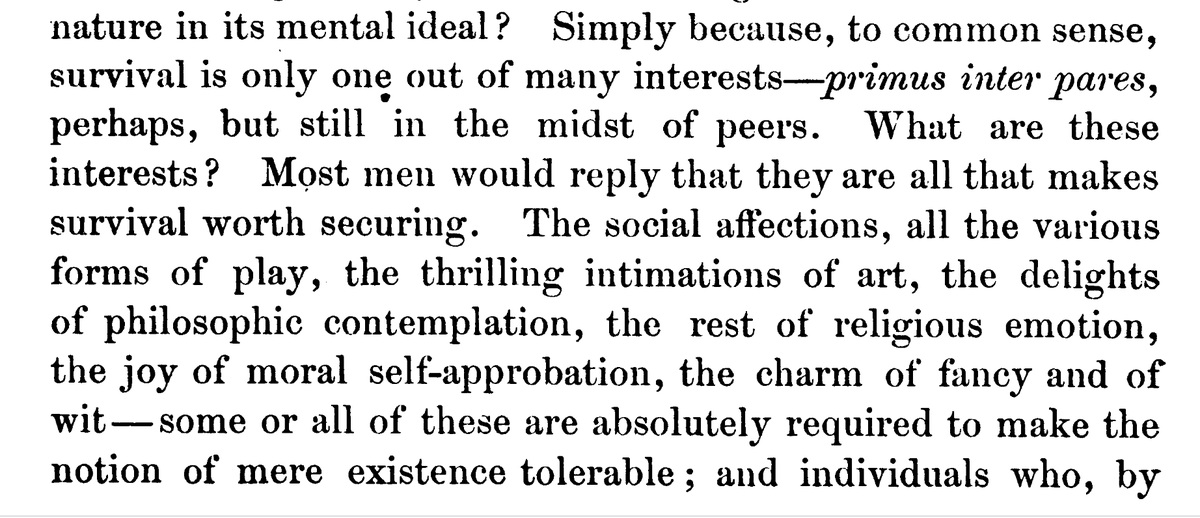
Am thinking of Queen's Gambit, Ep 5 where Harry Beltik offers to help Beth Harmon with chess. He admits freely he is not as good as she is, yet still thinks she can learn from him, and she does. This often happens: we learn from our epistemic inferiors. But how? Short thread 1/
A lot of the debate on disagreement focuses on your epistemic peers - people who are in an equally good epistemic position (e.g., in terms of evidence or skill) as you are and you disagree with. Such disagreement counts as higher-order evidence 2/
But what with people who know more than you? Should you always listen to your epistemic superiors? L Zagzebski has an argument to this effect: if A is your epistemic superior in domain D, you should just always defer to A because you're more likely to get it right then 3/
However, Jennifer Lackey has argued such an attitude of unquestioning deference makes you vulnerable to e.g., unscrupulous gurus and also requires you can identify who is an epistemic superior. I agree w her but I don't think her alternative to epistemic deference works 4/
(see ch 5 in my book on religious disagreement here for more details) - philpapers.org/rec/DECRD-3
In short, I think that we should not always unquestioningly defer to epistemic superiors, and the situation with epistemic inferior is symmetrical 5/
In short, I think that we should not always unquestioningly defer to epistemic superiors, and the situation with epistemic inferior is symmetrical 5/
Just like you ought not to always defer to an epistemic superior, you ought to not always disregard the dissenting opinion of an epistemic inferior. But it's tricky to figure out why this is.
After all, aren't you as an epistemic superior more likely to get it right? 6/
After all, aren't you as an epistemic superior more likely to get it right? 6/
In a pure domain such as chess, the situation becomes very puzzling of how to understand that Harry Beltik could help Beth Harmon study her games, and offer advice, given that she knows more about chess than he does 7/
Option 1: There are so many aspects to chess. Maybe Harry Beltik is good at, say, the Evans gambit and maybe Beth hasn't learned that gambit so well yet, so he might have more expertise just in that one thing than she, though not overall. 8/
Option 2: Beth might be not well aware of certain weaknesses in her play that someone with a bit more distance from her can see better. Say she is not good at defensive play. Beltik could help her work at those weaknesses thanks to his more impartial view on her play 9/
Option 3: Because Beth is Harry's epistemic superior, she's paradoxically in a better position to see things he might come up with she has not thought of. A bit like a professor recognizing a brilliant idea in a student that that professor would not have thought of herself. 10/
Option 4: Chess, as a martial art, sport, and game is also about character and virtue, e.g., patience, perseverance, are part of the practice of chess (cf MacIntyre). It helps to learn those things outside of competitions and Beltik could be a good sparring partner there 11/
There are probably other options I've overlooked. In any case, I think it's interesting to think about how we can learn from epistemic inferiors and chess is a nice case. Now, as some suggested, it may make a difference that chess is a skill and not purely propositional 12/
There's a lot of intuition involved (Beth is modeled on intuitive chess players, e.g., Capablanca). Still, you could recast this in propositional terms such as "Rh7 is the best move in this situation". Purely statistically, it would seem Beth never needs to listen to Harry 13/
In purely frequentist terms, a superior chess player would be more likely to find the "best" move.
Take this example (from a human-like neural network, Maia): a level 1100 player would make the tempting but wrong more b6, a level 1500 player would not.
Credit: @agadmator 14/
Take this example (from a human-like neural network, Maia): a level 1100 player would make the tempting but wrong more b6, a level 1500 player would not.
Credit: @agadmator 14/

But maybe the frequentist approach is not all there is to it. It is interesting to think about also because of analogous situations with epistemic superiors. We have good reasons to think we should not follow them unquestioningly either, though they're more likely to be right 16/
And similarly, you should not just unquestioningly dismiss an epistemic inferior even though you are more likely to be right than that person. All sorts of interesting questions follow from this (when to defer, when not, what situations...). /end
• • •
Missing some Tweet in this thread? You can try to
force a refresh



